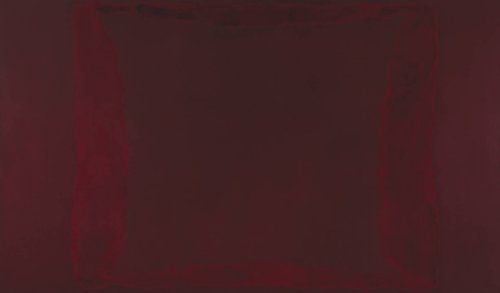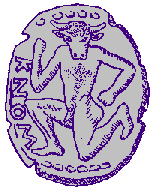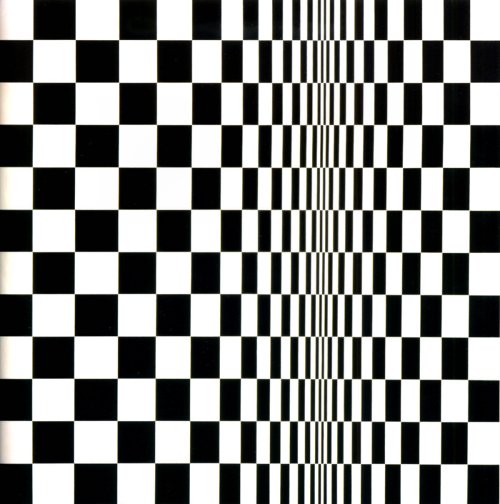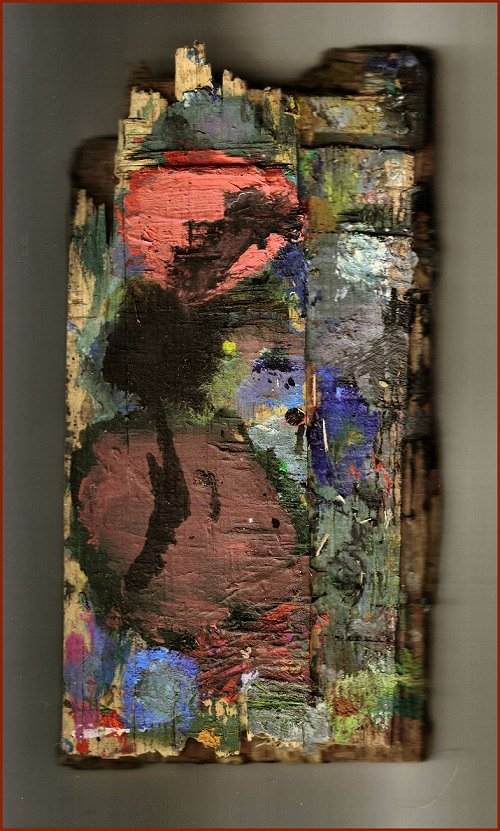THE CRIPPLED
HUMAN
CONSCIOUSNESS

|
This
sentence is a story.
Our consciousness is narrative. We are story-makers, story-devourers, story-inhabitants. We create complex stories, some of which we call history or dramas or novels, some of which we call religions. We create other stories which we call knowledge (or science). Language is a conspiracy. John Gray writes: 'Human uniqueness is a myth inherited from religion, which humanists have recycled into science.' This is patently untrue: we are unique because of language, not to mention writing. The question is whether language is a useful method of communication or not, whether the perceived advantages outweigh the unperceived drawbacks. We are addicted to explanation. We invent words like 'progress', which intensify and narrow the narratives into which we put our lives. But, generally speaking, 'by and large', our only 'progress' is technological, material, which is pretty pathetic in evolutionary terms, since we are now at the mercy of machines, corporations and bureaucracies as well as language! Orpheus talked to the beasts. He did not listen to them. The Bible, predictably, warns against listening to animals, especially snakes. This morning I heard two BBC radio programmes, one after the other. The first was about glaciations of the planet and levels of carbon dioxide over millions of years. After the second - a visit inside the poet Sylvia Plath's very disturbed head - I felt distinctly disoriented. Language is a bizarre labyrinth in which each of us is shoved like the Minotaur - a labyrinth in which each of us picks our way. And it is also the skeleton, the structure of our 'theatre of perception' : words define world. In the beginning was the Word. The only humans we know to have been without it are feral and 'Wolf-children', who of course were treated abysmally because no-one thought that they were extra-special, 'uncontaminated' or even 'liberated' humans. Naturally, once they acquired language, they were unable to describe how they thought before they were caught. When we die, we area unable to report what dying 'was like'. Once we have language, we are unable even to imagine what non-narrative being might be like. And this is probably the main reason why we treat animals so appallingly. Language can describe only what language (even imagistic language, simile, metaphor, paradox) can describe, and it is very two-dimensional (so to speak). It is no more transparent than television, and in some ways even more limited because it doesn't integrate simultaneously with music or pictures. Almost all music, because it is linear, is narrative. Sound that is not narrative we call 'noise'. 'Noisy' or 'white' noise can disorient and distress us. We like and seek out patterns. Endlessly-repeated patterns can entrance us. Is trance supra-linguistic or is it no more than dream ? But painting, since it is frozen in time, is not necessarily narrative. We seek and can often find or create patterns in abstract art (as in clouds) - even paintings by Rothko are susceptible to involuntary 'interpretation'. The most abstract or 'pure' abstract art is not interpreted by narrative, but 'is what it is', not very different from clear blue sky or sea. This can disturb us, because we tend to try to describe our feelings to ourselves. Amongst the most abstract of art is 'op-art', which plays on optical illusions. For this reason, paintings by Bridget Riley can be helpful in clearing the mind of narrative - though it is still tempting to 'interpret' them - in this example, as a wavy-chessboard. Language is the ultimate Authority - if only that it is only through language that authority can be wielded systematically, institutionally. A pre-literate way of doing this was through oratory - or, on the other hand, through oracles. Oratory is always narrative, whereas oracles were often paradoxical, enigmatic. Indeed the word 'enigmatic' describes the state of being puzzled by behaviour or language. Oracles seemed to connect to the non-language of symbols and Jungian archetypes, which may in fact themselves necessarily be products of narrative. And because psychoanalysis depends largely on language (and symbols) we cannot really 'let go' to 'free association'. Language is itself a censor, as Freud himself realised. It is Authority itself. Thus it is a huge weight on our eager brains. It suffocates intuition, which may be the nearest we ever get to wisdom, or, to put it more keenly, 'the wisdom of the animals'. The dreams we remember are those to which we can apply narrative. We don't say that we had a red dream with blue spots, because that seems 'meaningless'to us, and we tend to remember meaning, which is no more than narrative. Those who believe in 'heaven' or indeed any kind of afterlife, invoke a narrative - usually a rather inane and silly one. Heaven is a kind of imagined dream to which we do not apply the narrative of reason, but to which we apply some images or processes like 'floating in eternity'. But 'floating in eternity' includes the image or process of floating in water or under a parachute. 'Eternity' and 'infinity' (unlike beauty) present our narrative-oriented minds with no image, no sound, nothing that we can describe through narrative. They are mantric, unlike 'aspiration' which, though an apparently empty and abstract word, sets off a whole - unending - monologue in our heads., and cycle of destruction across the planet. If narrative is formed of sentences, some single words often are non-narrative. Not just zero, infinity or number, but merely grammatical words incapable of forming an image or a process like to, it, or, as - or words unknown to us, or in a language unknown to us - or nonsense words which do not chime with words than we know. Such words can be mantras, combinations of syllables chosen because they have no meaning, in order to enable us to transcend language. But how can we, as victims of language, recognise transcendence ? Especially when we think all other - non-linguistic - animals inferior. We imagine transcendent gods or spirits or some great consciousness, but they can only be in our own image and formed by our crude, linear minds. Linear, because language is linear. And is not every idea just a figment of language, not even a miasma, not even a faint smell - not even a hallucination ? We may think that ideas produce knowledge, perhaps even wisdom, once very important to certain reflective male minds. It is probably the advance of technology, global trade and with them mass-destruction (by economic as well as explosive means) that has banished the very idea of wisdom from our minds. We can make 'wise choices', but that's about the height of it. Wisdom is not a word we often hear. It is falling from the language, hence our consciousnesses, like the word 'wholesome', or the word 'honour'. Perceptiveness depends on a certain withdrawal. We need to look through the 'wrong' end of the telescope. Even the slightly perceptive are locked in isolation as well as in language :Russian eggs or Chinese boxes, spheres within spheres... Poetry (which is usually non-explanatory) sometimes almost transcends language - through what it sometimes says between the lines, or through conjuring piles of images as in Coleridge's Kublai Khan or Yeats' Byzantium. I write a rather prosey (and, I confess, explanatory) 'sort-of-poetry', wary of obscure or 'mystical' poetry like that of Mallarmé and Wallace Stevens, because that sort of poetry appeals to the mindless academics who make careers out of reducing it to pieces and patchworks of structure and ideas. Since our minds are shaped not just by language and explanation, but by particular languages and particular explanations, we are like children born in a warderless, windowless prison who live their entire lives within its walls, not knowing that they are prisoners. Thus we are no more 'evolved' than deep-sea fish. 'Life is a trap.' This is another story, which 'gets us nowhere'.
Unfortunately, when I take, say, cannabis, thoughts race around my head almost kaleidoscopically, and I go deep into the shit of language rather than escaping from it. Music and dance seem to be able to by-pass language to some extent, especially non-European classical music, particularly Indian dhrupad, but also classical middle-eastern music. Nevertheless, even the most abstractly-interpreted indian raga depends on melody, and a melody is a musical sentence. I have always been attracted by the idea behind Original Sin. It seems obvious to me that we are all tainted soon after (if not before) we are born. I now think that 'original sin' is language. Not nakedness, but the word 'nudity' associated with the word 'shame'. And our vague awareness of consciousness unmoderated by language may be what we call 'innocence' in the new-born, or 'soul' - in which case we are amongst the only animals without souls. Once we have learned it, nothing short of brain surgery can allow us to escape language. It is easy for us to confuse language with life - for beyond both stretches the vast nowhere of existence, of which we know only the tiniest particle. It is language which has enabled humanity's reign and rain of ruin upon the earth. The longer that language and our species last, the more ruined will be the planet. Language is at the centre of our hubris - the tyrannical control-centre, for our fear of death is the fear of nothingness, which, to our imprisoned minds is absence of narrative, the Blue Screen of Computer-failure. But using language to talk about what its limitations or its transcendence might be 'gets us nowhere'... ...which is maybe 'the best place' to be... Being rather than talking inside or outside our heads. Being rather than doing. Being rather than demanding 'meaning'. Is this nihilism (another purely abstract word to which we cannot attach narrative) ?
When people take drugs, or drink to get drunk, it is certain narratives in their heads that they wish to suppress. Or indeed all narrative. If animals experience life as a sort of David Attenborough TV series - without Sir David - how attractive it is to those who are permanently oppressed by the running commentary inside their head!. The intention behind many suicides may be not to erase life, but to erase the narratives of life and the conspiring 'memes' that infect and cripple our consciousness like cancers or viruses. |
read about
Language Acquisition by the Deaf
from
Far From the Tree
by Andrew Solomon



